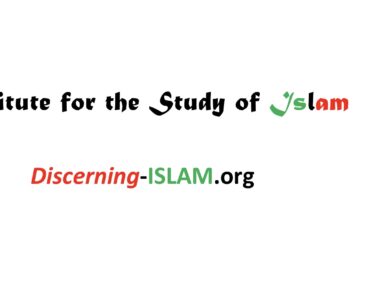
Judaism
Judaism in the Middle East is mostly in the state of Israel. Israel’s population is 75.3 percent Jewish, with the remainder made up of Muslims (20.6 percent), Christians, Druze, Bahá’í and various other minorities (4.1 percent). There are a few other countries in the Middle East with significant Jewish populations, but they are small, scattered communities.
Yahadut, the distinctive characteristics of the Judean ethnos encompasses the religion, philosophy, culture and way of life of the Jewish people. Judaism is an ancient monotheistic religion, with the Torah as its foundational text (part of the larger text known as the Tanakh or Hebrew Bible), and supplemental oral tradition represented by later texts such as the Midrash and the Talmud. Judaism is considered by religious Jews to be the expression of the covenantal relationship that God established with the Children of Israel.
Judaism includes a wide corpus of texts, practices, theological positions, and forms of organization. Within Judaism there are a variety of movements, most of which emerged from Rabbinic Judaism, which holds that God revealed his laws and commandments to Moses on Mount Sinai in the form of both the Written and Oral Torah.
Historically, this assertion was challenged by various groups such as the Sadducees and Hellenistic Judaism during the Second Temple period; the Karaites and Sabbateans during the early and later medieval period; and among segments of the modern non-Orthodox denominations. Modern branches of Judaism such as Humanistic Judaism may be nontheistic. Today, the largest Jewish religious movements are Orthodox Judaism (Haredi Judaism and Modern Orthodox Judaism), Conservative Judaism and Reform Judaism. Major sources of difference between these groups are their approaches to Jewish law, the authority of the Rabbinic tradition, and the significance of the State of Israel.
Orthodox Judaism maintains that the Torah and Jewish law are divine in origin, eternal and unalterable, and that they should be strictly followed. Conservative and Reform Judaism are more liberal, with Conservative Judaism generally promoting a more “traditional” interpretation of Judaism’s requirements than Reform Judaism. A typical Reform position is that Jewish law should be viewed as a set of general guidelines rather than as a set of restrictions and obligations whose observance is required of all Jews.
Historically, special courts enforced Jewish law; today, these courts still exist but the practice of Judaism is mostly voluntary. Authority on theological and legal matters is not vested in any one person or organization, but in the sacred texts and rabbis and scholars who interpret them.
The history of Judaism spans more than 6,000 years. Judaism has its roots as a structured religion in the Middle East during the Bronze Age (3300-1200 BC). Judaism is considered one of the oldest monotheistic religions. The Hebrews and Israelites were already referred to as “Jews” in later books of the Tanakh such as the Book of Esther, with the term Jews replacing the title “Children of Israel.” Judaism’s texts, traditions and values strongly influenced later Abrahamic religions, including Christianity, Islam and the Baha’i Faith. Many aspects of Judaism have also directly or indirectly influenced secular Western ethics and civil law.
Jews are an ethnoreligious group and include those born Jewish and converts to Judaism. In 2012, the world Jewish population was estimated at about 14 million, or roughly 0.2 percent of the total world population. About 42 percent of all Jews reside in Israel and another 42 percent reside in North America, with most of the remainder living in Europe, and other minority groups spread throughout South America, Asia, Africa, and Australia.
Defining Characteristics And Principles Of Faith
Unlike other ancient Near Eastern gods, the Hebrew God is portrayed as unitary and solitary; consequently, the Hebrew God’s principal relationships are not with other gods, but with the world, and more specifically, with the people He created. Judaism thus begins with ethical monotheism: the belief that God is One and is concerned with the actions of humankind.
According to the Tanakh (Hebrew Bible), God promised Abraham to make his offspring a great nation. Many generations later, He commanded the nation of Israel to love and worship only one God; that is, the Jewish nation is to reciprocate God’s concern for the world. He also commanded the Jewish people to love one another; that is, Jews are to imitate God’s love for people. These commandments are but two of a large corpus of commandments and laws that constitute this covenant, which is the substance of Judaism.
Thus, although there is an esoteric tradition in Judaism (Kabbalah), Rabbinic scholar Max Kadushin has characterized normative Judaism as “normal mysticism,” because it involves everyday personal experiences of God through ways or modes that are common to all Jews. This is played out through the observance of the Halakha, the collective body of Jewish religious laws derived from the Written and Oral Torah, and given verbal expression in the Birkat Ha-Mizvot, the short blessings that are spoken every time a positive commandment is to be fulfilled.
Whereas Jewish philosophers often debate whether God is immanent or transcendent, and whether people have free will or their lives are determined, Halakha is a system through which any Jew acts to bring God into the world.
Ethical monotheism is central in all sacred or normative texts of Judaism. However, monotheism has not always been followed in practice. The Jewish Bible (Tanakh) records and repeatedly condemns the widespread worship of other gods in ancient Israel. In the Greco-Roman era, many different interpretations of monotheism existed in Judaism, including the interpretations that gave rise to Christianity.
Moreover, some have argued that Judaism is a non-creedal religion that does not require one to believe in God. For some, observance of Jewish law is more important than belief in God per se. In modern times, some liberal Jewish movements do not accept the existence of a personified deity active in history.
Core Tenets
Scholars throughout Jewish history have proposed numerous formulations of Judaism’s core tenets, all of which have met with criticism. The most popular formulation is Maimonides’ thirteen principles of faith, developed in the 12th century. According to Maimonides, any Jew who rejects even one of these principles would be considered an apostate and a heretic. Jewish scholars have held points of view diverging in various ways from Maimonides’ principles.
In Maimonides’ time, his list of tenets was criticized by Hasdai Crescas and Joseph Albo. Albo and the Raavad argued that Maimonides’ principles contained too many items that, while true, were not fundamentals of the faith.
Along these lines, the ancient historian Josephus emphasized practices and observances rather than religious beliefs, associating apostasy with a failure to observe Jewish law and maintaining that the requirements for conversion to Judaism included circumcision and adherence to traditional customs. Maimonides’ principles were largely ignored over the next few centuries. Later, two poetic restatements of these principles (“Ani Ma’amin” and “Yigdal”) became integrated into many Jewish liturgies, leading to their eventual near-universal acceptance.
In modern times, Judaism lacks a centralized authority that would dictate an exact religious dogma. Because of this, many different variations on the basic beliefs are considered within the scope of Judaism. Even so, all Jewish religious movements are, to a greater or lesser extent, based on the principles of the Hebrew Bible and various commentaries such as the Talmud and Midrash. Judaism also universally recognizes the biblical Covenant between God and the patriarch Abraham as well as the additional aspects of the Covenant revealed to Moses, who is considered Judaism’s greatest prophet.
In the Mishnah, a core text of Rabbinic Judaism, acceptance of the Divine origins of this covenant is considered an essential aspect of Judaism and those who reject the Covenant forfeit their share in the World to Come.
Judaism
513 – 008
https://discernimg-Islam.org
Last Update: 04/2021




